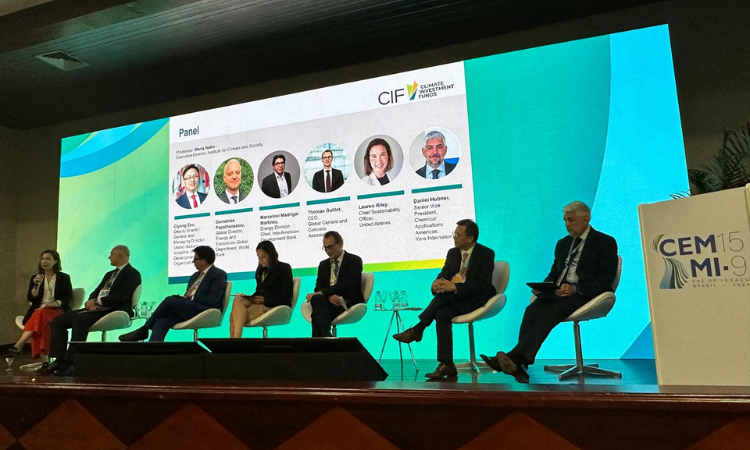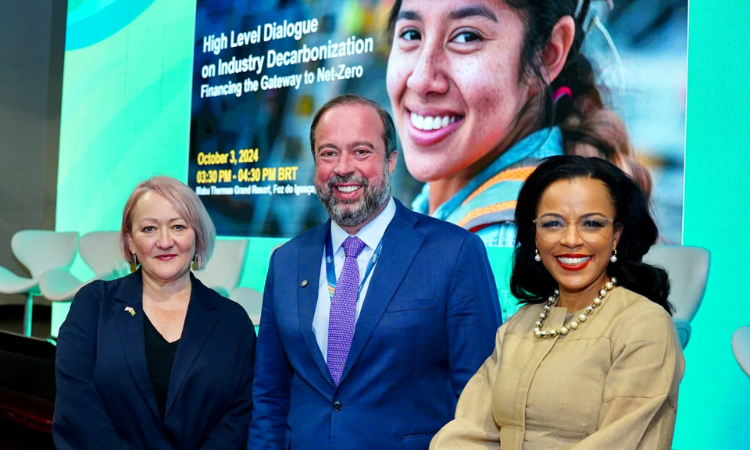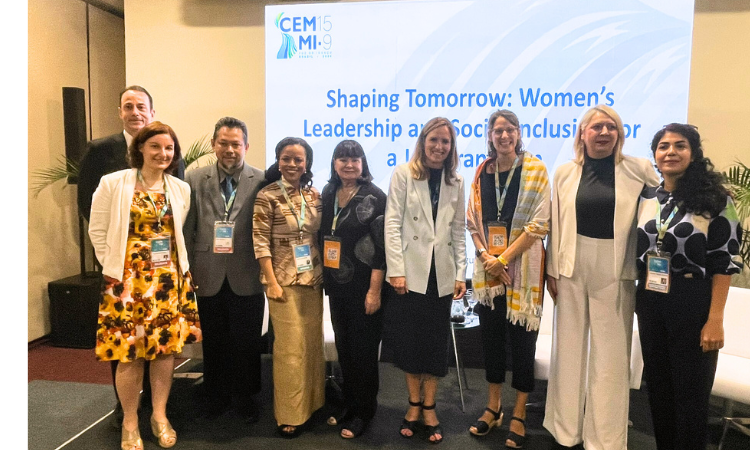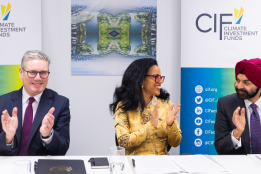“The future depends on decarbonizing heavy emitting sectors.” This is one of the key messages that emerged as the Climate Investment Funds (CIF) launched a Call for Expressions of Interest for its Industry Decarbonization Investment Program.
The launch announcement was made at the 15th Clean Energy Ministerial and the 9th Ministerial Meeting on Mission Innovation (CEM15/MI-9), a strategic global forum held in Foz do Iguaçu, Brazil this year* that brought together country partners, private sector representatives, and a variety of energy stakeholders. We were particularly pleased to have as part of the launch, representatives from various sectors, such as concrete, steel, and aviation as well as the United Nations Industrial Development Organization (UNIDO) and our multilateral development bank (MDB) partners.

The Call for Expressions of Interest invites developing countries to participate in this first-of-its-kind investment program that will bring unprecedented private sector engagement by encouraging businesses, governments, and multilateral development banks (MDBs) to work together to decarbonize heavy-emitting sectors and align to national climate objectives.
CIF Chief Executive Officer, Tariye Gbadegesin persuaded “forward-thinking businesses that are eager to innovate” to join CIF and its partners in taking up the challenge. She noted:
“The future depends on decarbonizing heavy emitting sectors. To meet our climate goals, we need industry’s emissions to decline by 20% by 2030 and 93% by 2050. Crucially, industrial decarbonization and green supply chain jobs can drive a just and prosperous transition. This is what CIF was created for, to accelerate technologies of the future to solve our greatest climate challenges.”

The Industry Decarbonization Program is a unique investment vehicle that spurs innovation, pilots new technologies, and advances a fair, inclusive, and just transition for industries and the countries they operate in. This is why the United Kingdom (UK) as a CIF contributor country, has supported this program, as UK Minister for Climate, Department for Energy Security and Net Zero, Kerry McCarthy, explains:
“I’m proud that the UK is backing this cutting-edge program that will help attract much-needed investments into developing countries to decarbonize industries. Speeding up the decarbonization of steel, iron and cement in emerging markets around the world is how we will reduce global emissions and accelerate the clean energy transition.
The Call for Expressions of Interest is now open until January 17, 2025, and all eligible developing countries are invited to apply.
CEM15 discussions on Women in coal transition and battery storage
We cohosted a session on “Shaping Tomorrow: Women’s Leadership and Social Inclusion for a Just Transition.” with the Equality in Energy Transitions Initiative, a technology collaboration program, run jointly by the International Energy Agency (IEA) and CEM.
Delivering the keynote address, our CEO Tariye Gbadegesin pointed to why gender lies at the heart of our investment plans. She said:
“Gender equality is central to CIF’s mission of transformational change … Our programs encourage asset accumulation by women, the shifting of restrictive gender norms that limit the role of women in society, and empowering women as decision-makers and leaders at local and national levels.”
The panel discussion included country partners from the Governments of Indonesia and the UK, explored how the integration of gender equality and social inclusion into energy transitions can drive meaningful global change.
Tony Susandy, Deputy Director for Technical and Environmental Affairs at the Directorate General of New Renewable Energy and Energy Conservation in Indonesia, emphasized the importance of governments leading by example. His department prioritizes demonstrating this commitment by supporting the integration of gender in the energy transition. This effort begins internally, as they embody their dedication to women’s leadership: their director is a distinguished female scientist and professor, he says. His team also upholds a 50:50 male-to-female ratio with equal representation at the decision-making level.

We also joined the discussion on women’s climate leadership and just transitions in a workshop with the Global Climate Action Partnership. CIF’s Gender and Social Inclusion Lead, Nina Kolybashkina spoke to the meaning of what it means to operationalizing the word “just” in coal transitions in a session on “Just Energy Transitions (JET) to Support High Climate Ambition”. As Ms. Kolybashkina outlined:
“Engaging with local communities and deliberately identifying and including women and vulnerable groups in all aspects of transition planning, decision making and implementation of projects is crucial. More finance needs to be channeled directly to local communities, and these communities and civil society organizations that represent them should be empowered to hold the governments, the private sector and development partners to account on how the money is being spent”.
* CEM15/MI-9 was held from September 30 to Oct 4, 2024




